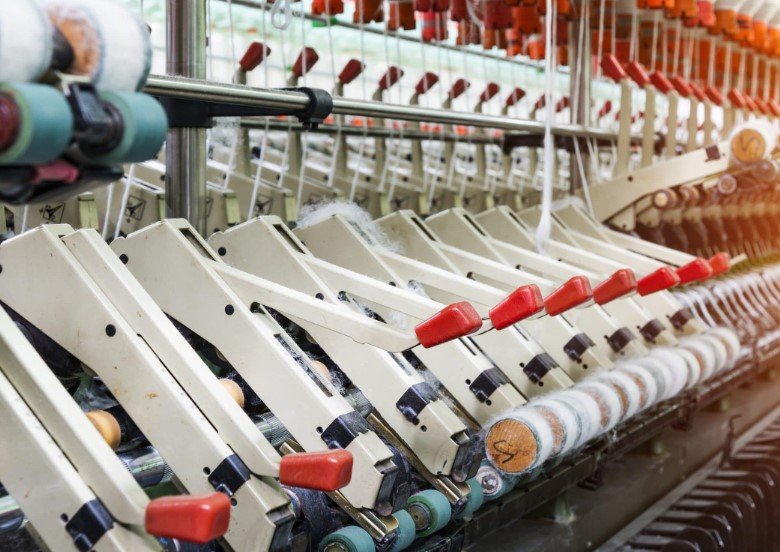Egypt’s push for industrial decentralization just got a serious upgrade—three major projects, over $200 million in investments, and thousands of new jobs on the horizon.
A ministerial panel has approved new private free zone units across key regions, giving a substantial lift to the country’s textiles and ready-made garments (RMG) sector, while also introducing PVC panel manufacturing to the local market for the first time. If the numbers hold up, more than 15,000 jobs are expected to be generated from these projects alone.
Three Cities, Three Big Bets on Industry
The approved projects will be spread across New Beni Suef, 10th of Ramadan City, and New Alamein—each chosen for strategic reasons like labor availability, export potential, and regional accessibility.
Two of the projects are focused on textiles and garments—sectors Egypt has long considered pillars of its non-oil exports. The third? A brand new PVC flooring and panel plant, signaling a move toward product diversification.
New Beni Suef, in particular, is set to become a major RMG hub, thanks to a $30 million project that promises to generate 9,000 jobs on its own.
That’s not a small number by any standard.
Investments Total Over $216 Million
Here’s how the investment math breaks down:
| City | Project Type | Investment ($ million) | Estimated Jobs |
|---|---|---|---|
| New Beni Suef | RMG Factory | 30.0 | 9,000 |
| 10th of Ramadan City | Textile Manufacturing Unit | 78.5 | 4,000 |
| New Alamein City | PVC Panel & Flooring Plant | 108.0 | 2,150 |
| Total | 216.5 | 15,150 |
Together, the investments showcase not just growth ambitions, but a clear shift in Egypt’s industrial geography—from capital-concentrated manufacturing to regional expansion.

New Alamein’s PVC Factory Marks a First for Egypt
The $108 million project in New Alamein is getting more than just headlines—it’s also drawing policy attention.
That’s because Egypt doesn’t currently have a local PVC panel manufacturing base. Kamel Al-Wazir, the country’s Deputy Prime Minister for Industrial Development, said the facility will “fill a crucial market gap” and could dramatically reduce Egypt’s reliance on imported panels for construction and housing.
It also helps that New Alamein is strategically located near Mediterranean ports, making it a logistics sweet spot for exports.
One sentence here—New Alamein is being watched closely.
Why 10th of Ramadan Still Holds Investor Magnetism
Despite being one of Egypt’s older industrial zones, 10th of Ramadan City is still drawing big-ticket manufacturing projects.
The new textile unit planned here will bring in $78.5 million worth of investment, focused on both domestic distribution and regional exports. Industry insiders say the area’s infrastructure and proximity to Cairo give it a dual advantage: access to skilled labor and direct export channels.
It’s also one of the few zones with deep specialization in textiles—a key reason investors feel comfortable betting big.
• Easy access to raw material supply chains
• Well-developed transport links
• Skilled local labor pool
Still, it’s the job creation potential—4,000 new roles—that could be the real headline grabber.
Beni Suef’s RMG Push Aims to Revitalize Upper Egypt
Beni Suef has long been discussed in policy circles as a region with untapped potential—especially in terms of skilled labor and textile tradition.
Now, the $30 million RMG factory finally puts action behind that talk.
It’s located in the medium industries zone and is projected to create 9,000 jobs. Local officials believe this project could serve as a “template” for other governorates like Minya and Fayoum, both of which face similar economic profiles.
What makes this interesting isn’t just the scale—it’s the timing.
The region’s economy has been trying to break out of agriculture-dependency, and an RMG manufacturing base could be just what the local workforce needs.
Why the Government Is Betting on Private Free Zones
Private free zones are not new in Egypt, but they’re becoming increasingly central to industrial policy. Unlike public free zones, these allow companies to operate independently with fewer bureaucratic hurdles.
That’s particularly useful for export-heavy sectors like garments and PVC, where global demand shifts quickly and firms need to move fast.
Kamel Al-Wazir pointed out that recent reforms have “significantly reduced red tape,” encouraging investors to explore newer governorates and not just huddle around Greater Cairo.
One sentence again—Egypt’s bet on private zones is looking less risky by the day.
